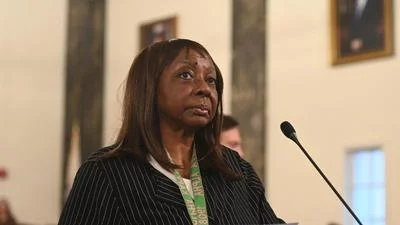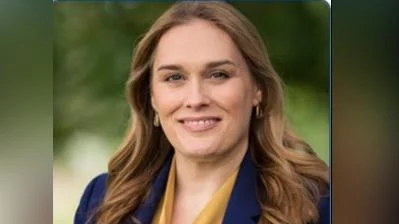Illinois Governor's Office issued the following announcement on Aug. 7.
Governor JB Pritzker today joined Green Era and members of the Auburn Gresham community to announce a $3 million state investment that will help bring a new urban farming campus to Chicago's south side. The $32 million project will transform a vacant brownfield parcel into a new Green Era Urban Farming Campus that will provide access to fresh food, renewable energy and resilient growth for a community that has historically suffered from disinvestment and a lack of employment opportunities.
Green Era's project combines capital investment, renewable energy, food production and access, training and education, and job creation to create a model for economic development. Construction on the vacant, 9-acre site is slated for completion in March 2022 and will create hundreds of permanent and construction jobs for members of the community.
"For years, this project has been a brilliant proposal on paper lacking the funding to get off the ground - and the brownfield where we now stand has been vacant for decades more," said Governor JB Pritzker. "But this is a project that incorporates renewable energy, food production, availability of healthy foods, and climate-smart job training. It's exactly the kind of 21st century vision that deserves our investment, and that's why the State of Illinois is providing $2 million in funding to launch construction this month, setting Green Era up for completion in the spring of 2022."
Green Era's farming campus leverages cutting edge technology for sustainable outcomes to increase local food supply, while transforming waste bound for landfills into reusable sustainable energy for local businesses. An anaerobic digester will break down organic food waste, producing nutrient rich compost on site to help meet the demand of urban farmers and community gardeners, and to produce renewable energy that will power its facilities. All on-site programming will be operated by the Urban Growers Collective, which will support youth and adult education and engagement, community growing and the Farmers for Chicago program.
"Green Era and its partners will transform this contaminated, brownfield parcel of land into a beautifully floral and edible landscape that will serve as a source of education, growth and pride for the community," said Erika Allen, Co-Founder of Green Era and Co-CEO of Urban Growers Collective. "We are very thankful for this grant and eager to establish the city as an international model for spurring economic development and serving the local community through a sustainability project right here in the Auburn-Gresham Community."
The State is contributing $2 million from Governor Pritzker's bipartisan Rebuild Illinois capital plan to fill the final funding gap for the project, as part of a statewide initiative to transform underutilized properties into economic development opportunities. State funds will be paired with financing supported through a New Market Tax Credit, including commitments from several local funding partners including IFF, Chicago Community Loan Fund, the MacArthur Foundation's Benefit Chicago, and many others.
"By investing in communities of color with a focus on key industries including agribusiness, renewable energy, ag tech and manufacturing, we are growing the jobs of the future in the community," said Michael Negron, Acting Director of the Department of Commerce and Economic Opportunity (DCEO). "The timing of this project could not be better to promote an equitable recovery in a community that has been disproportionately hit hard by the health and economic effects of COVID-19 and for too long has experienced disinvestment."
The new Campus seeks to resolve the prevalence of food deserts on Chicago's South Side by increasing access to fresh, locally grown food, as well as by increasing capacity for residents to grow their own food. The new Campus will include 13,000 square feet of greenhouse space, expected to grow over 26,000 pounds of food per year.
The project offers wide-ranging environmental benefits, with an estimated 85,000 tons of recycled food and waste reducing up to 42,500 tons of CO2 per year -the equivalent of taking 9,182 passenger vehicles off the road per year. These benefits will be made possible as a result of the environmental restoration of the project site. Green Era has enrolled the site in the Illinois Environmental Protection Agency's (IEPA) Site Remediation Program and obtained a $1 million loan from the Illinois EPA's Brownfield Redevelopment Loan Fund, including $200,000 in principal forgiveness, to help with the site's clean-up. Green Era also received $600,000 in Brownfield Cleanup Grants from the U.S. EPA for remediation at the site and to support community outreach activities.
"Illinois EPA has worked with Green Era through our Site Remediation Program to provide technical assistance, and through our Brownfield Revolving Loan program to provide financial assistance, for the cleanup and redevelopment of this Brownfield site," said Illinois EPA Director John J. Kim. "We are pleased and anxious to see the redevelopment of this former industrial site and construction of the anaerobic digester facility."
Green Era has partnered with bp to sell renewable energy produced at its facility through its anaerobic digester, expanding access to renewable natural gas that can be used for heating and transportation fuels while illustrating the market for Green Era's products beyond Chicago.
"When bp was approached by Green Era to collaborate on this project, we knew it would be a great opportunity to support sustainable neighborhoods and demonstrate there is a market for low-carbon fuels like renewable natural gas," said Janet Kong, bp regional business leader, Global Oil Americas. "It's exciting to be a part of a local project that fits with bp's ambition to get to net zero by 2050 or sooner and help cities get there too."
This unprecedented project will demonstrate how sustainable development can spur economic opportunity through youth education, internship opportunities and workforce development programs. Green Era's project will create an initial 240 construction jobs, 47 permanent jobs for the community, as well as hundreds of contracting opportunities. Green Era is partnering with Black Chicago Tomorrow and the Chicago Cook Workforce Partnership to develop workforce training, prioritizing hiring for local residents as well as residents with barriers to re-entry.
"I have lived in Auburn-Gresham my whole life and experienced all of its economic fluctuations first-hand," said Chief Executive Officer Greater Auburn-Gresham Development Corporation Carlos Nelson. "I am thankful for Urban Growers Collective and Green Era's promising investment in Auburn-Gresham and can't wait to see how this ever-giving project will uplift the community as a whole and improve the quality of life for all of my neighbors."
"Food deserts are the genesis of what has become a public health crisis in some of our urban areas. The relationship between access to fresh foods and health, academic performance and overall quality of life is well known," said Illinois State Senator Jacqueline Collins. "Urban farming with job creation is an investment to transform struggling neighborhoods like Auburn Gresham.
In addition to improving access to food and job opportunities, Green Era will invest in the long-term future of the neighborhood economy by offering sustainable practices in health, wellness, and local food production. The project also complements plans for a new Metra station near 79th and Halsted, just blocks away, that will bring employees as well as visitors to the neighborhood.
"This project is a genesis for Auburn Gresham's next green entrepreneurs," said Alderman Howard Brookins, Jr., 21st Ward. "It will create jobs, help the environment, and help bring ultra-fresh produce to our homes and restaurants. Moreover, gardens and farms beautify neighborhoods and employ and benefit residents, which, in turn, creates more local pride and attachment to their community."
This project aligns with the State's economic growth priorities by supporting the sustainable agriculture industry and adopting innovative agriculture processes, increasing the production of renewable energy, and reducing the racial equity gap through hiring and educational opportunities. The new Green Era Urban Farming Campus was made possible, in part, by Rebuild Illinois - Governor Pritzker's historic $45 billion capital program.
Original source can be found here.





 Alerts Sign-up
Alerts Sign-up